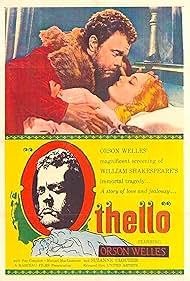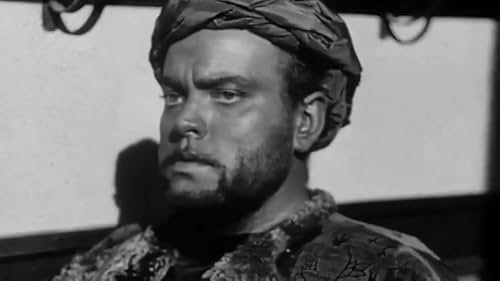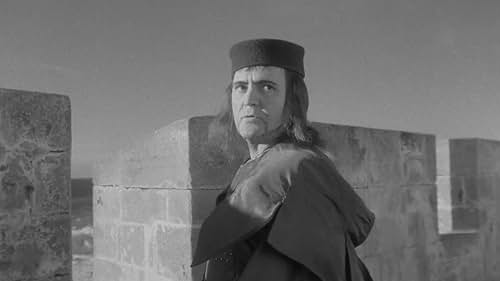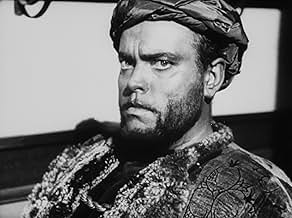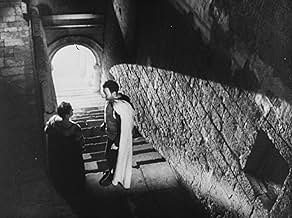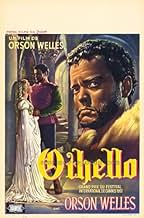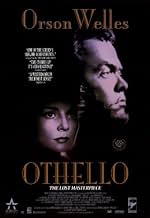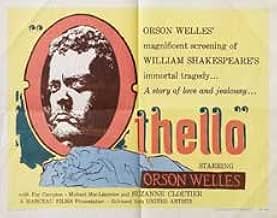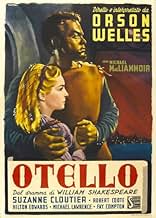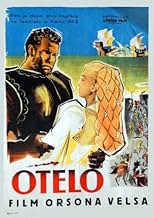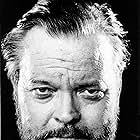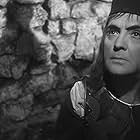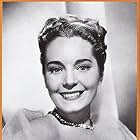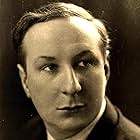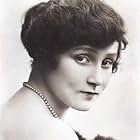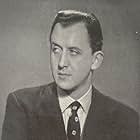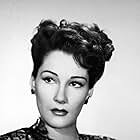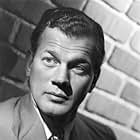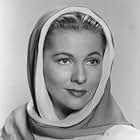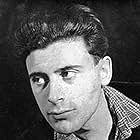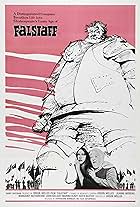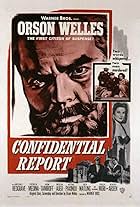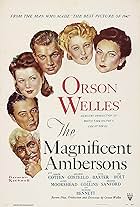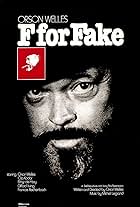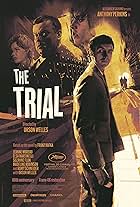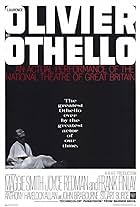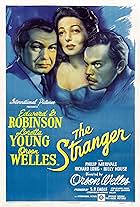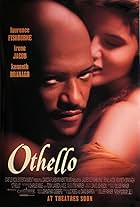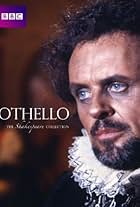IMDb RATING
7.5/10
9.7K
YOUR RATING
The Moorish General Othello is manipulated into thinking that his new wife Desdemona has been carrying on an affair with his Lieutenant Michael Cassio when in reality, it is all part of the ... Read allThe Moorish General Othello is manipulated into thinking that his new wife Desdemona has been carrying on an affair with his Lieutenant Michael Cassio when in reality, it is all part of the scheme of a bitter Ensign named Iago.The Moorish General Othello is manipulated into thinking that his new wife Desdemona has been carrying on an affair with his Lieutenant Michael Cassio when in reality, it is all part of the scheme of a bitter Ensign named Iago.
- Awards
- 1 win & 1 nomination
Abdullah Ben Mohamet
- Pageboy
- (uncredited)
Joseph Cotten
- Senator
- (uncredited)
Jean Davis
- Montano
- (uncredited)
Joan Fontaine
- Page
- (uncredited)
Robert Rietty
- Lodovico
- (voice)
- (uncredited)
Gudrun Ure
- Desdemona
- (voice)
- (uncredited)
Storyline
Did you know
- TriviaThe movie was shot over three years and production was stopped twice, mainly because Welles ran out of money. He then starred in the films "The Third Man (1949)" and "Prince of Foxes (1949)." He took his payment from those films and used them as money for "Othello".
- Alternate versionsThis film by Orson Welles, was 'restored' by a group in Chicago in 1991/2. The film was transferred to, and enhanced in video, (D1 format) retaining it as black and white. The audio was completely rebuilt, including the score, in Stereo Surround. All dialogue, however was original. This was a problem as some of the dialogue was distorted and unintelligible. John Fogelson, editor, was a major supervisor of the project. Ed Golya, Lorita DeLacerna, and Steve Wilke, were digital editors. And Ed Golya remixed the soundtrack. The process took 9 months. It was purchased for distribution by Castle Hill, and taken to New York where it went through another transformation before release. The restoration engineer in New York, Paul Michael, restored the audio that was supplied on 35mm optical negatives. He was able to remove the distortion, optical pops and surface noise that is inherent with Optical negatives. The restored audio was then sent to Sound One for the final mix. Unintelligible dialogue was replaced with 'sound-alikes'. This decision was made for the entertainment value of the film. The original mono music was then reintroduced into the final product. Basically, the film was retransferred, and the rebuilt sound effects tracks were added. This was done at Sound One, in NYC.. The credits were adjusted to place Lee Dickter (sp?) as Re-recording Mixer, and Ed Golya as Sound Effects Editor.
- ConnectionsEdited into Histoire(s) du cinéma: La monnaie de l'absolu (1999)
Featured review
Othello, Moor of Venice, loves Desdemonda. Unbeknownst to him, one of his lieutenants, Iago, seething with jealousy, plans to bring him down. Iago slowly builds a web of deceit and lies around Othello that leads him to question the faithfulness of his wife and men, ultimately pushing him to far...
Many a time has a white actor portrayed black Othello. Thankfully, Welles excels in the title role, his hurt palpable. In adapting Shakespeare's play, Welles has done away with subplots he deemed unnecessary. His "Othello" boils down to the title character, his wife, Iago and bit players (and impressive numbers of extras). Fans of the text may regret the absence of a character or the significant reduction of his/her importance. It diminishes the play but enhances the film, giving it a tighter focus and a more fluid structure and running time. But as always, we expect more from an Orson Welles film.
Orson Welles is mostly celebrated for reinventing the look of film. His pictures each possess a unique aesthetic and daring camera work. Othello holds its own even when measured against the impressive Welles oeuvre, a true miracle if you are familiar with the films' history. Shooting it over years and in different locations (Morocco, Spain, etc.) with variations, often within the same scene, Welles managed to create the watertight illusion of a coherent world, leading the viewer to imagine that lavish sets and locations were available. For anyone interested in editing or any other aspect of film-making, this is an indisputable milestone in directorial resourcefulness.
Othello was Welles's second Shakespeare interpretation as star and director, soaring high above his very interesting Macbeth. He would return to the Bard one last time with his apotheosis, Chimes at Midnight. This trilogy is a gift. What a joy it is to see America's greatest director work with the world's greatest playwright...
Many a time has a white actor portrayed black Othello. Thankfully, Welles excels in the title role, his hurt palpable. In adapting Shakespeare's play, Welles has done away with subplots he deemed unnecessary. His "Othello" boils down to the title character, his wife, Iago and bit players (and impressive numbers of extras). Fans of the text may regret the absence of a character or the significant reduction of his/her importance. It diminishes the play but enhances the film, giving it a tighter focus and a more fluid structure and running time. But as always, we expect more from an Orson Welles film.
Orson Welles is mostly celebrated for reinventing the look of film. His pictures each possess a unique aesthetic and daring camera work. Othello holds its own even when measured against the impressive Welles oeuvre, a true miracle if you are familiar with the films' history. Shooting it over years and in different locations (Morocco, Spain, etc.) with variations, often within the same scene, Welles managed to create the watertight illusion of a coherent world, leading the viewer to imagine that lavish sets and locations were available. For anyone interested in editing or any other aspect of film-making, this is an indisputable milestone in directorial resourcefulness.
Othello was Welles's second Shakespeare interpretation as star and director, soaring high above his very interesting Macbeth. He would return to the Bard one last time with his apotheosis, Chimes at Midnight. This trilogy is a gift. What a joy it is to see America's greatest director work with the world's greatest playwright...
- How long is Othello?Powered by Alexa
Details
- Release date
- Countries of origin
- Official sites
- Languages
- Also known as
- Orson Welles' Othello
- Filming locations
- Castle, El Jadida, Morocco(cistern interior)
- Production companies
- See more company credits at IMDbPro
Box office
- Gross US & Canada
- $28,980
- Opening weekend US & Canada
- $6,010
- Apr 27, 2014
- Gross worldwide
- $28,980
- Runtime1 hour 30 minutes
- Color
- Aspect ratio
- 1.37 : 1
Contribute to this page
Suggest an edit or add missing content

